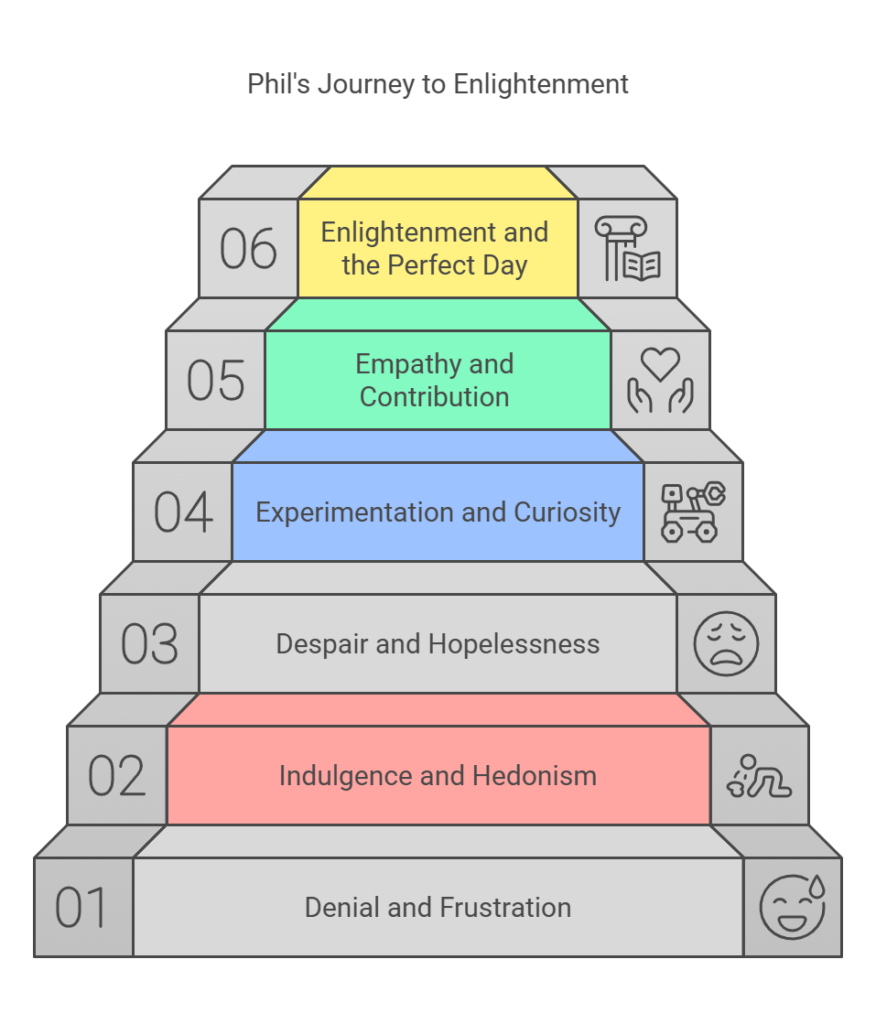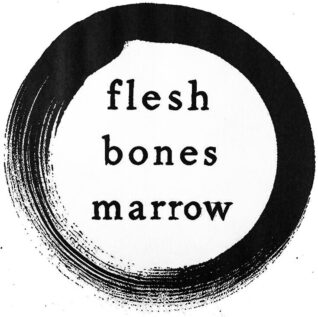Laying the foundations for memory and reflection
In today’s fast-paced world, we rarely take the time to understand how we spend our days. Often, we fail to reflect—not because we don’t want to, but because we simply lack the time. Reflection is a deeper process that starts with a foundation of memory and data, providing the essential materials for understanding and growth. Structured daily journaling or logkeeping is the act of retaining that data—creating a foundation for memory that can later be revisited for patterns and insights.
This practice is not about immediate reflection but about preserving the raw material necessary for future understanding and growth. By capturing detailed records of our daily lives, we ensure that, even in our busiest moments, we’re laying the groundwork for eventual retrospection.
The Hero Quote: “We Are What We Repeatedly Do”
“We are what we repeatedly do. Excellence, then, is not an act, but a habit.” — Will Durant (paraphrasing Aristotle in The Story of Philosophy).
This quote underscores the power of consistent actions in shaping our identity and success. Structured logkeeping aligns perfectly with this philosophy. By habitually capturing the raw details of our lives, we establish a habit that fosters discipline, growth, and memory preservation. The data retained through logkeeping becomes the foundation for excellence—not as a singular act, but as a cultivated practice over time. It supports later analysis, pattern identification, and reflection, helping us align our actions with our values and goals.
Keystone Habits: The Power of Foundational Practices
Keystone habits are foundational habits that trigger a ripple effect of positive changes across various areas of life. Coined by Charles Duhigg in The Power of Habit, these habits are powerful because their impact is far-reaching and deep. They influence how we think, act, and approach challenges, often unintentionally improving multiple aspects of our lives.
Examples of keystone habits include:
-
Regular Exercise: Improves physical health, boosts mood, increases productivity, and encourages healthier eating habits.
-
Family Dinners: Strengthen family bonds, foster communication, and promote emotional well-being.
-
Journaling: Enhances self-awareness, improves decision-making, and helps track progress over time.
Structured daily journaling is itself a keystone habit, distinct from others in its unique ability to merge data collection with personal growth. While exercise fosters physical well-being and financial tracking secures monetary discipline, journaling offers a foundation for self-awareness by preserving memory and uncovering patterns. Its power lies in its versatility and its capacity to touch every facet of life, from improving decision-making to fostering emotional resilience. By logging daily activities and observations, it creates a strong foundation for memory and self-awareness. The act of journaling sets off a cascade of unintended positive outcomes—helping to identify patterns, improve focus, and align actions with values. Its impact is far-reaching, touching every aspect of life. communication, and promote emotional well-being.
-
Journaling: Enhances self-awareness, improves decision-making, and helps track progress over time.
Structured daily journaling is itself a keystone habit. By logging daily activities and observations, it creates a strong foundation for memory and self-awareness. The act of journaling sets off a cascade of unintended positive outcomes—helping to identify patterns, improve focus, and align actions with values. Its impact is far-reaching, touching every aspect of life.
Why Keystone Habits Are Essential
Building on weak or sporadic habits results in fragile foundations that are prone to breaking under stress, requiring constant rebuilding. Keystone habits, on the other hand, provide stability and resilience. They are self-reinforcing and create momentum for broader transformation.
Structured journaling exemplifies this principle. As a keystone habit, it doesn’t just record your life—it shapes the foundation for future reflection. By maintaining a consistent log, you capture the data needed to gain clarity about what works, what doesn’t, and where to focus your energy for the most meaningful impact.
Groundhog Day: A Case Study in Iterative Growth
The story arc of Groundhog Day offers a vivid illustration of iterative self-improvement and personal transformation, much like the practice of journaling lays the groundwork for clarity and deeper understanding over time. Phil Connors, a self-centered and cynical weatherman, finds himself trapped in a time loop, reliving the same day repeatedly. While at first bewildered and frustrated, he embarks on a journey of experimentation, growth, and eventual enlightenment. Here’s how his iterations evolved:
-
Denial and Frustration: At first, Phil resists his circumstances, feeling angry and confused about reliving the same day. This phase mirrors how we often resist change and fail to see the opportunity within challenges.
-
Indulgence and Hedonism: Realizing there are no consequences to his actions, he indulges in selfish pleasures, exploiting his unique situation for personal gain. This phase reflects ego-driven pursuits that, while temporarily satisfying, fail to bring long-term fulfillment.
-
Despair and Hopelessness: After tiring of indulgence, Phil spirals into despair, attempting to escape the loop through various means, including suicide. This represents an existential crisis—confronting the futility of external validation and quick fixes.
-
Experimentation and Curiosity: Phil begins experimenting with the possibilities of the day. He learns new skills, such as playing the piano and ice sculpting, and gathers knowledge about the people around him. This phase mirrors the early stages of self-awareness and skill-building.
-
Empathy and Contribution: Phil shifts his focus outward, using his knowledge and abilities to improve the lives of others in the town. He saves lives, repairs relationships, and acts selflessly. This marks his transition to a values-driven, purpose-filled life.
-
Enlightenment and the Perfect Day: Ultimately, Phil achieves a perfect day—not through external validation, but by fully aligning his actions with authentic values. Only when he reaches this state of selflessness and genuine fulfillment is he freed from the loop.
The end goal of Phil’s journey—and of structured journaling—is not to achieve perfection in a single day but to refine our understanding of what truly matters through iterative reflection and growth.

Structured Logkeeping: Capturing the Raw Data
Logkeeping is analogous to practices in other areas that naturally lead to improvement through consistent record-keeping. For example, just as tracking expenses improves financial management, and logging workouts enhances fitness routines, journaling provides the raw data needed for personal growth and deeper reflection. For instance:
Financial Management: Keeping a record of expenses helps identify spending patterns, manage budgets, and set financial goals.
Exercise Logs: Recording workouts tracks progress, identifies strengths or weaknesses, and guides routine adjustments.
Food Diaries: Tracking meals and snacks reveals eating habits and aids in maintaining a balanced diet.
Similarly, structured logkeeping for daily activities serves as the foundation for future reflection and growth. It captures events, actions, observations, or emotional states, allowing for deeper analysis and pattern identification over time. The act of logging is straightforward and requires minimal cognitive effort—it’s about recording without overthinking or immediate analysis. This approach is particularly powerful for busy individuals who lack the time to deeply reflect but want to retain a record of their lives.
Logkeeping differs from immediate reflection in that its scope is narrower: it is simply about capturing data. This includes events, actions, observations, conversations, or even emotional states. The more varied and comprehensive the data, the better equipped you are for future reflection and pattern identification. The more data, the better. The act of logging is straightforward and requires minimal cognitive effort—it’s about recording events, actions, or observations without overthinking or analyzing them in the moment. This approach is particularly powerful for busy individuals who lack the time to deeply reflect but want to retain a record of their lives.
The Importance of Memory
Memory is the foundation for reflection. Without records, our ability to identify patterns, understand motivations, and track progress is severely limited. Logkeeping creates a reservoir of information that can later be mined for insights. It is this practice of retaining data that allows us to eventually reflect, refine, and realign our actions.
Developing Flagship Models: A Case Study in Excellence
The creation of flagship models in product development parallels the journey of personal growth, much like structured journaling parallels the development of self-awareness. Both require consistent effort, iteration, and a strong foundation to build something resilient and valuable. A flagship model represents the best version of a product—refined, perfected, and embodying best practices. Achieving such excellence requires a foundation of continuous iteration and improvement, much like structured journaling.
Key Requirements for Achieving a Flagship Model
Solid Foundation: Just as personal growth begins with self-awareness, flagship products start with a robust foundation of design, engineering, and purpose. Building on a weak foundation results in an end product that is fragile, prone to breaking, and in need of constant rebuilding. Every iteration must reinforce and improve upon this solid base to ensure long-term success and resilience.
Iterative Refinement: Great products evolve through small, deliberate improvements. This approach embodies the philosophy of Kaizen, the opposite of making big, heroic changes. By focusing on small, easy changes, and consistently addressing flaws and optimizing features, the flagship model reflects the culmination of these enhancements.
Feedback Integration: Understanding user needs and behaviors is critical. Successful models rely on feedback loops to incorporate insights into each update, ensuring relevance and excellence.
Alignment with Values: Like personal development, flagship models succeed when they embody the core values and mission of their creators. Authenticity and alignment make them resonate with users.
Patience and Persistence: A flagship is not created overnight. It requires dedication, experimentation, and resilience—learning from missteps and iterating toward the ideal.
Lessons from Flagship Development
Flagship models illustrate the importance of intentionality and reflection. Just as structured journaling helps individuals refine their habits and goals, the process of creating a flagship product involves meticulous data collection, retrospection, and commitment to progress.
When we journal, we are, in essence, developing the “flagship model” of our lives. Each entry is an iteration, each reflection an opportunity to refine our understanding of what works best for us.
Getting Started
Choose a Format: Whether it’s a notebook, a digital app, or even a spreadsheet, pick a medium that suits your style.
Define Categories: Start with broad categories like “Morning Routine,” “Work Accomplishments,” “Physical Activity,” and “Family Time.” Refine as needed.
Be Consistent: Set aside time daily to record your entries, ideally at the same time each day.
Review Regularly: Schedule periodic reviews to mine your entries for insights and evaluate your progress.
Conclusion
Structured daily journaling or logkeeping is not about immediate reflection—it’s about creating a foundation for memory, the essential groundwork for future understanding and transformation. By consistently logging the raw data of your life, you prepare yourself for the day when time and space allow for reflection. This practice ensures that nothing is lost and that, when the moment for retrospection arrives, you have the tools to truly understand and transform your life.
